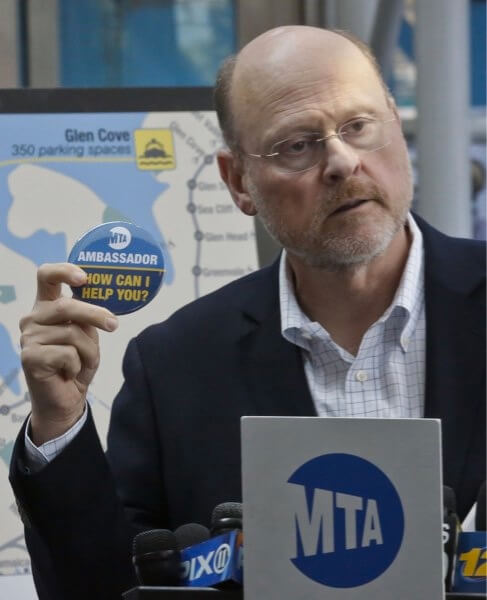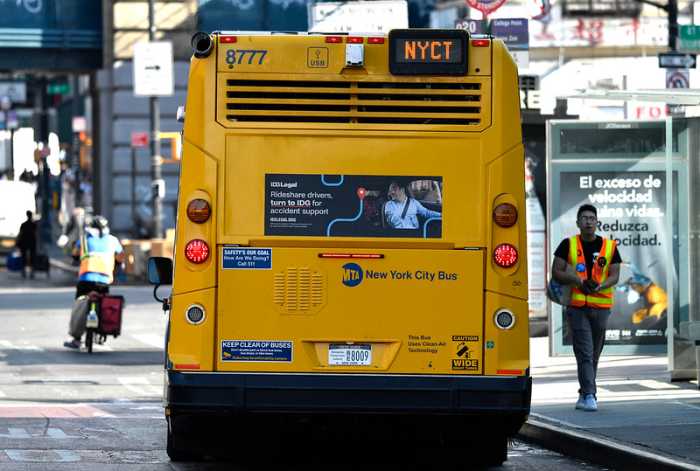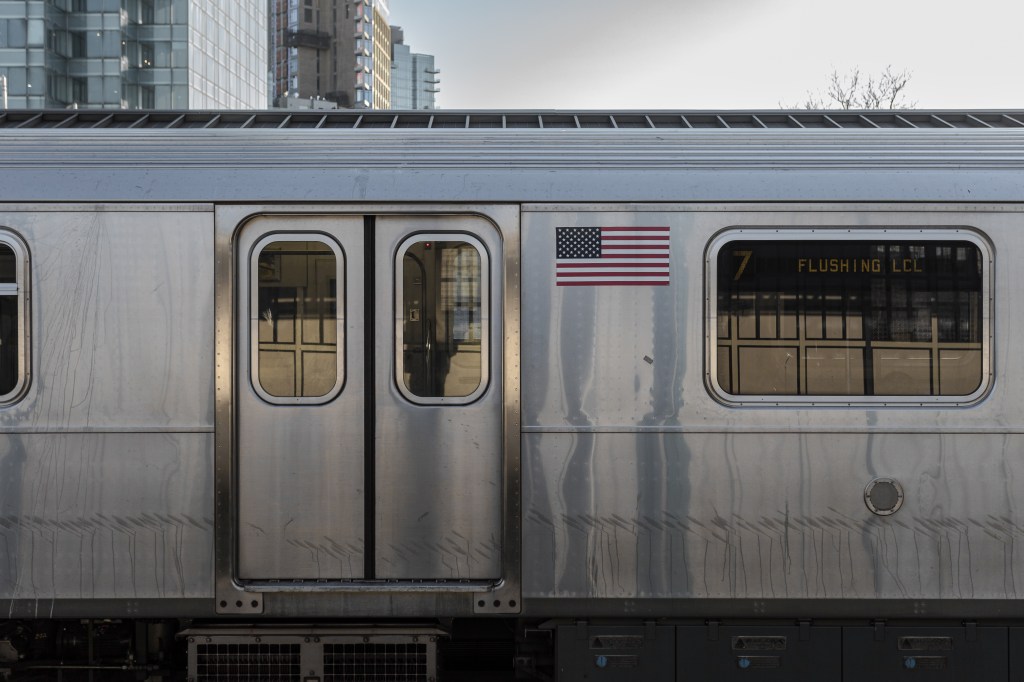By Mark Hallum
MTA Chairman Joseph Lhota jumped into a recent squabble between Mayor Bill de Blasio and Gov. Andrew Cuomo over whether the city or state is responsible for funding the New York City Transit system. The transit head said in a Tuesday press conference he believed the de Blasio administration has an obligation to involve itself in funding not only the short-term plan to stabilize the subways while formulating a long-term solution, but funding the subway’s operations in general.
“I will work with him closely. I will do everything I can to convince him that this is the right thing to do for the people of the city of New York,” Lhota said, referring to the mayor.
Lhota said he believed a 50-50 split of the cost for the short-term plan to temporarily rein in the crisis would be reasonable.
Cuomo accused the city of paying far less than its fair share by only contributing about $2.5 billion to the MTA’s $29 billion five-year capital plan, while the de Blasio administration maintained its position that it is under no obligation pay any more than it has in the past.
De Blasio responded Wednesday to Lhota’s remarks by saying he would offer help through concrete resources such as the FDNY and NYPD assistance, but claimed the MTA already has the funds it currently needs.
“The problem is – over the last years where there was a chance to make the tough choices on things like fixing the signals and all – unfortunately people made the easy choices and deferred, and deferred, and deferred,” De Blasio said.
At an earlier press conference July 20, Lhota chronicled a lengthy history of the state taking up responsibility for the city public transportation in the face of economic trouble and lackluster investment from City Hall. The transit head said he would be unveiling a plan to fix the broken transit system and claimed it was time for the city to pull its financial weight.
“Under no circumstance do I expect the state of New York to shirk its responsibility. This is about the city constantly saying that they have no role in [financing] the New York City Transit Authority – they have every role,” Lhota said. “They own it, they lease it to the MTA to operate. It’s their responsibility to fund it. When [the city] was in a fiscal crisis, the MTA and the state came to protect the assets of the New York City Transit Authority. Because the [subway] system is the circulatory system that allows our economy to grow and our entire region to grow.”
The 1970s were an iconic period for the subways. Graffiti covered much of the surface of trains while crime, often violent, was common. It was during this time the Guardian Angels, founded by Curtis Sliwa, rose into prominence by protecting commuters through peacekeeping vigilantism. Modern New Yorkers would recognize many of the service inefficiencies during this time compared to today in terms of breakdowns.
“What happened in 1981, was that the city, because of its fiscal crisis was no longer funding the capital needs of any part of the city of New York, most notably its transit system,” Lhota said. “For those of you who were around in the late ’70s, early ’80s, you remember the subways were in terrible repair – terrible situation, graffiti, tens of thousands of breakdowns every year.”
It was around this time the state Legislature passed a law to put operations of the subways under control of the MTA but established that ownership would remain with the city.
“The fiscal crisis is over,” Lhota said. “It’s been over for quite a long period of time. The city of New York last year had a $3 billion surplus, this year it has a $4 billion dollar surplus. It just had a 5 percent income tax renewed. The times have changed and just like any other reorganization, when an organization is on the verge of bankruptcy, at some point you get back to the normal relationship.”
Lhota concluded that he did not expect the city to take on the full burden of operating and funding the subways, but he did expect a higher commitment from City Hall to fund capital improvements.
In late June, Gov. Andrew Cuomo declared a state of emergency for the subways in order suspend bureaucratic processes and expedite modernization of the signal system and assets such as train cars. Cuomo is also pouring an extra $1 billion into the MTA’s capital funds to see these overhauls through.
The No. 7 train has become a popular example for the city’s transit woes in that the signal system is over a century old and the development of the basic design goes back to the late 19th century. Overcrowding on the line is said to be at full capacity, according to some transit advocates such as Access Queens founder Melissa Orlando.
Reach reporter Mark Hallum by e-mail at mhall




































